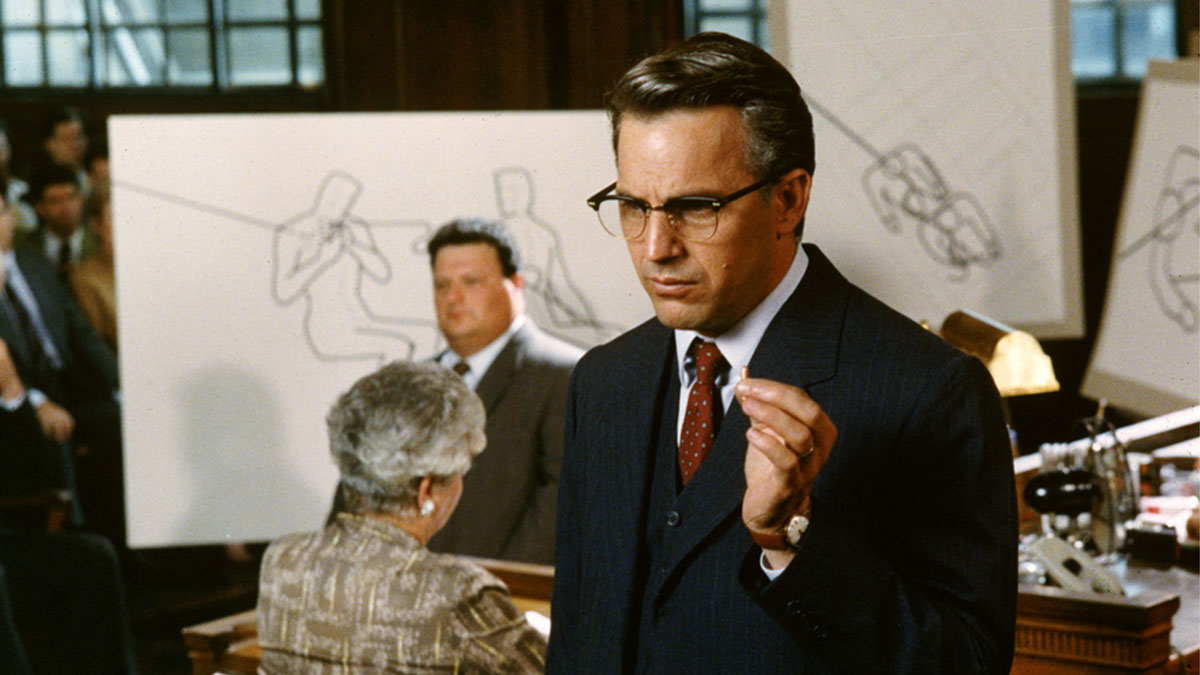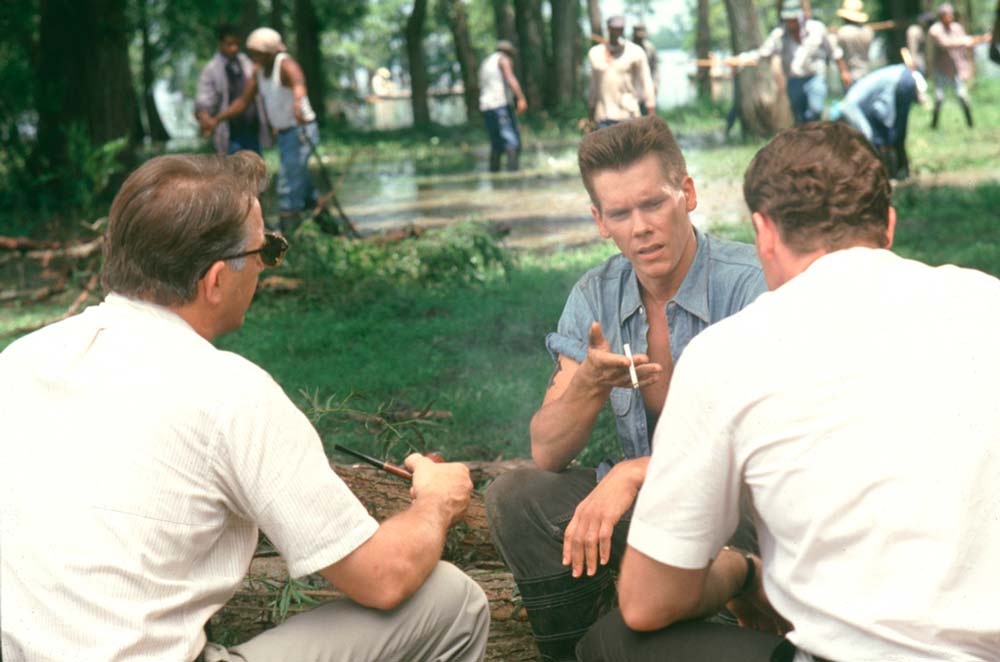
(C)2016 Twentieth Century Fox Home Entertainment LLC. All Rights Reserved.
``JFK'' orchestrated bashing, Oliver Stone's challenge to Kennedy assassination Part 1
2021.01.01
The road to making the Kennedy assassination into a movie
How much of a shock did the assassination of President Kennedy nearly 60 years ago have on the world? Now that more than half a century has passed, it's hard to feel the reality anymore.
"Since that incident, I have lost all trust in my parents' generation."
Director Oliver Stone, who was a 17-year-old high school student at the time, recalls that. He was a student at Hill School in Pennsylvania and was spending his lunch break in the dormitory. I vividly remember a friend knocking on the door to tell me that Kennedy had died.
Raised in a Republican family, Stone was a conservative patriot. On the surface, he did not appear to be greatly shocked, partly because he supported Republican politicians such as Richard Nixon, who ran against Democrat Kennedy for the presidential election, and Barry Goldwater, who ran for president the following year. However, deep down he was shocked by the young leader's death.
At first, it was believed that Lee Harvey Oswald was the sole perpetrator of the crime, as reported, but after Kennedy's assassination, the Vietnam War became a quagmire, and the assassination of his younger brother Robert Kennedy, who was seen as his successor, was suspected. , a series of mysterious incidents occurred one after another, and I began to smell a conspiracy.

In 1967, the day before he turned 21, Stone went to war in Vietnam. He volunteered to be an infantryman. On the battlefield, he smoked marijuana and LSD, and sometimes achieved victory by hitting a grenade into a trench where enemy soldiers were hiding. When Stone returns from Vietnam, where he spent 15 months and nearly died several times, he is shocked by the indifference of people. Eventually, he became addicted to drugs and became suspicious of the nation. However, when he began studying film with Martin Scorsese and others at New York University, his life began to take shape. After The Graduate, he continued writing screenplays.
For Stone, the Watergate scandal was an event that sowed decisive doubts about the nation, leading to the resignation of the current president, but the screenplay ``Cover Up,'' which Stone wrote during that period, was based on a conspiracy between a secret organization and the FBI. This is a story about an attempt to destroy a political organization.
It wasn't until 1988 that he decided to make a film about the assassination of President Kennedy. In the Platoon of that year, he was about to start filming `` Born on the 4th of July, '' which was themed after ``Platoon,'' and just before that, he attended the Latin American Film Festival in Havana. At the hotel where I stayed to participate, I met a woman from the publisher. She handed me a copy of ``On the Trail of the JFK '' (translated by Takao Iwase/Hayakawa Shobo), which had just been published by her company.
The author of this book is Jim Garrison, a former New Orleans prosecutor. The story centers on the trial that began in 1967, when he arrested local businessman Clay Shaw on charges of conspiracy to be involved in Kennedy's assassination, and is the only true story in which the Kennedy assassination case was contested in an American court. This is a memoir.
Stone looked through it immediately and thought, "It's like a Dashiell Hammett detective story." In fact, the Kennedy assassination itself is full of spectacle that rivals any mystery movie. The president was shot to death during a parade in full view of the public in broad daylight, and Oswald, the suspect who fired the shot from the 6th floor of a nearby textbook warehouse building, was also taken to prison two days later at around 11:20 a.m. on November 24th for deportation. He was taken to the underground parking lot of the Dallas Police Department and shot dead at close range by Jack Ruby, a businessman with ties to the Mafia. The truth disappeared into darkness.
The story is full of cinematic highlights, as a district attorney uses his hometown as a foothold to gather various testimonies from a glimpse of the dark world and bring them to trial to prove a national conspiracy. Stone describes his excitement after reading the original work.
"It starts with a small, shady crime, and then the district attorney secretly pursues a lead, and that lead grows bigger and bigger, and before you know it, it's no longer a small-town case. That's very important to me. It seemed like the heart of a powerful movie.'' (``In Search of the JFK Kennedy Assassination'')
Stone immediately acquired the film rights. Moreover, he himself paid the $250,000 cost. This was not because the major film companies judged it to be a dangerous project that they could not handle. Stone, who won the Academy Award for Best Picture and Best Director for ``Platoon,'' and would immediately win his second Academy Award for Best Director for ``Born on the Fourth of July,'' began working on the theme of the Vietnam War during this period. In addition to his works, `` Wall Street '' (1987) was highly praised, and was at the height of his career.
"Platoon" preview
In other words, if he announced that he would make a movie about the Kennedy assassination, major studios would immediately jump on board, but that also meant that information would be leaked from the planning stage. Deciding that it would be better to carefully wait for this project to ripen, Stone secretly bought the original work with his pocket money and began considering it.
After reading related books and looking at the mysteries of the case, the problems, and the arguments made by people other than Garrison, Stone decided to make a movie with Garrison as the main character and the Clay Shaw trial as the climax. However, there was a problem. The real-life Jim Garrison, who is the model for the main character, had both praise and praise, and to put it simply, he was a deceitful person. Making a movie based on him could have led to trouble.
So I made an appointment with Garrison and bombarded him with questions for three hours. The energetic Stone didn't hesitate to ask questions even if they had to be asked in a roundabout way, and he didn't mind even offending the other person.
The two eventually met up in Dallas, where they were filming ``Born on the Fourth of July.'' Coincidentally, in the same city where Kennedy's assassination took place, Stone and Garrison secretly conspired to make JFK into a movie.

